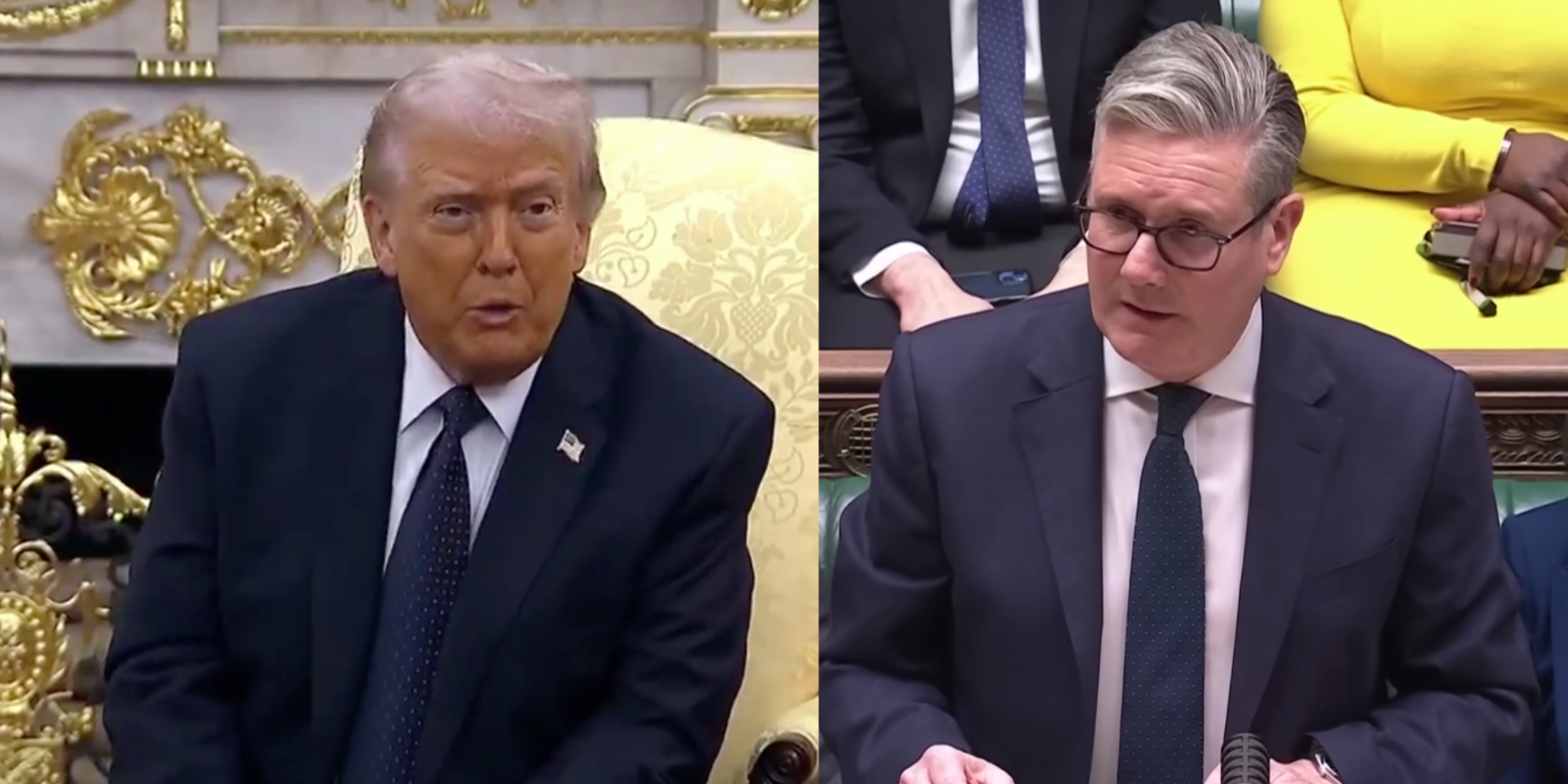GamerGate refuses to die. Last week, the New York Times published a collection of articles commemorating the infamous gaming event that took the world by storm in 2014. “August Never Ends,” wrote GamerGate’s progenitor and catalyst, Zoe Quinn, one year after the event. A truism, given how the media insists on whipping out GamerGate as the mainstream media’s bogeyman to scare readers from exercising independent thought.
A diverse collection of gamers who were interested in discussing the topic found themselves at the core of a struggle around free speech on social media.
To understand why most media deploy GamerGate this way, you have to first decipher how these media define “GamerGate.” In their series of features, the New York Times characterized GamerGate as a watershed moment that singularly catalyzed a surge of online harassment and coordinated trolling—acting as a base for what is now called the “alt-right.”
As the story goes, a man named Eron Gjoni wrote the now-infamous series of tell-alls called the “Zoe Post,” in which he exposed his ex-girlfriend—the aforementioned game developer Zoe Quinn—for infidelity with multiple men, known as the “five guys” (burgers and fries, as the meme went). Of these five guys, several are game developers, and one is a journalist for Kotaku, a well-known gaming publication.
As with any event in the gaming world, gamers talked about it on Twitter, Facebook, Reddit, and a host of gaming forums. The difference between the “Zoe Post” and any other topic, however, was that the discussion faced rapid, wholesale censorship across the gaming landscape: Reddit’s gaming communities, IGN, NeoGAF, and numerous other gaming platforms banned anyone for talking about it. Even 4chan, home of some of the internet’s most nefarious trolls, forbid conversation on the subject.
Naturally, attempts to stymie the conversation prompted discussions about Zoe Quinn to emerge elsewhere—most prominently on Twitter, where it was given new life after actor Adam Baldwin coined the hashtag “#GamerGate.” #GamerGate caught on. It went viral. And a diverse collection of gamers who were interested in discussing the topic found themselves at the core of a struggle around free speech on social media.
Gamers had been pushing back against instances of unethical behavior in the games press for years. Controversies like “DoritosGate” (2012) saw an outpouring of criticism against the gaming press and their uncomfortably tight relationship with advertisers.
By 2014, the tension between gamers and the gaming press was high. Like a powder keg, it was ripe to explode.
Zoe Quinn lit the fuse.
[caption id="attachment_180173" align="alignnone" width="1920"] Ellie, The Last of Us 2. Naughty Dog.[/caption]
Ellie, The Last of Us 2. Naughty Dog.[/caption]
THE BUILD-UP
GamerGate was not created in a vacuum. Disillusion with the gaming press had been brewing since the mid-2000s, especially concerns raised over the industry’s embrace of sponsored reviews.
The gaming press had become quite obviously partisan, injecting progressive political commentary into their coverage.
Video game consumers were highly concerned with digital rights management (DRM), loot boxes, and “games as a service” (which is the game industry’s way of saying customers don’t own the products they pay for). Video game journalists, completely out of touch with the consumers they supposedly served, chose instead to focus on insular reviews of atypical games, brushed aside consumer complaints in negligent coverage of games with serious problems, and participated in press events that served as little more than all-expense-paid vacations for games journalists.
Frustrated customers scrutinized these reviews and the compromised entanglements between the press and video game producers. Collaborations such as gaming luminary Geoff Keighley’s ill-conceived partnership with Doritos and Mountain Dew became some of the most propagated memes of the early 2010s. Earlier in 2007, Jeff Gerstmann, a high-profile games journalist, was fired from GameSpot after posting a negative review of a game that was heavily advertised on the publication that employed him.
To add to this disenchantment with gaming journalism, consumers noticed a troubling trend in the early 2010s. The gaming press had become quite obviously partisan, injecting progressive political commentary into their coverage.
With the rise of broader social justice culture, political correctness was slowly injected into the gaming press through reviews and articles criticizing video games for their edgy humor or politically tone-deaf content. Case in point, the Japanese creators of Resident Evil 5—a game set in a generic African country—received heavy criticism for its portrayal of Africans as a host of stereotypes. Granted, these responses had some merit, but crucially, similar efforts were made to condemn less egregious "offenses"—games journalism just became an expression of "cancel culture" writ large.
By this point, distrust for the press had become endemic in the gaming community.
[caption id="attachment_180155" align="alignnone" width="1920"] Lara Croft, Shadow of the Tomb Raider. Square Enix.[/caption]
Lara Croft, Shadow of the Tomb Raider. Square Enix.[/caption]
FIRST THEY KILL THE GAMERS
The efforts to stifle conversation about the “Zoe Post” didn’t only revolve around censorship. They also took the form of a series of articles, now memorialized as the “Gamers are Dead” articles by GamerGate’s proponents. These pieces tactically vilified those attempting to discuss the “Zoe Post” as a manifestation of overrun misogynistic toxicity in gaming culture—deserving of cancellation.
"Gamers" don't have to be your audience. "Gamers" are over. Leigh Alexander / Gamasutra / 28 August 2014 We Might Be Witnessing The "Death of An Identity" Luke Plunkett / Kotaku / 28 August 2014 An awful week to care about video games Chris Plante / Polygon / 28 August 2014 The End of Gamers Dan Golding / 28 August 2014 It's Dangerous to Go Alone: Why Are Gamers So Angry? Arthur Chu / The Daily Beast / 28 August 2014 Sexism, Misogyny, and online attacks: It's a horrible time to consider yourself a gamer Patrick O'Rourke / Financial Post / 28 August 2014 Gaming Is Leaving "Gamers" Behind Joseph Bernstein / Buzzfeed / 28 August 2014 A Guide to Ending "Gamers" Devin Wilson / Gamasutra / 28 August 2014 The SJW effect – welcome to the end of the world Patrick Garratt / VG247 / 28 August 2014 The death of the "gamers" and the women who "killed" them Casey Johnson / Ars Technica / 29 August 2014 This guy's embarrassing relationship drama is killing the 'gamer' identity Mike Pearl / Vice / 29 August 2014 Announcement: Readers who feel threatened by equality no longer welcome Tim Colwill / GamesONnet / 29 August 2014 (Archived) Why we need more developers like Zoe Quinn Dan Whitehead / Eurogamer / 30 August 2014 There are gamers at the gate, but they may already be dead Jonathan Holmes / Destructoid / 31 August 2014 This Week in Video Game Criticism: Tropes vs Anita Sarkeesian and the Demise of 'Gamers' Kris Ligman / Gamasutra / 1 September 2014
This was a concerted effort by a small network of people within the gaming press to set the narrative; I know this because I was a part of it. At the time, I edited a publication called Critical Distance, which curated collections of think pieces exploring the video game space through a “critical” (read: progressive) lens. During the 7-day period that the “Gamers are Dead” articles ran, Critical Distance curated a host of articles celebrating the demise of the core gaming community and bringing special attention to so-called “attacks” on feminist media critic Anita Sarkeesian.
There was a sense amongst gamers that game journalists actively colluded with one another in their effort to ‘kill gamers’ during this period. A mailing list called GameJournoPros was exposed on Breitbart to show game journalists and game industry PR staff collaborating in secret to silence discussion on GamerGate, and even deplatform freelance journalists who stepped out of line.
Admittedly, the link between GameJournoPros and the “Gamers Are Dead” coverage was entirely tenuous; many of the authors involved in the massive article series were not members of the group. The endemic mistrust of journalists and the suggestion of conspiracy, however, was enough to agitate the gaming community.
 Members of the gaming press acted just like political journalists, seizing onto critical moments to become a relevant part of the conversation. If there was any collusion, it came in the form of narrative construction. Leigh Alexander argued, in her seminal piece, “‘Gamers are over. ‘Gamers don’t have to be your audience.’” She was—at the time—one of the most powerful voices in games journalism, even going as far as to brag, “Silly kids. I am games journalism.”
Members of the gaming press acted just like political journalists, seizing onto critical moments to become a relevant part of the conversation. If there was any collusion, it came in the form of narrative construction. Leigh Alexander argued, in her seminal piece, “‘Gamers are over. ‘Gamers don’t have to be your audience.’” She was—at the time—one of the most powerful voices in games journalism, even going as far as to brag, “Silly kids. I am games journalism.”
Alexander’s piece set the tone for subsequent coverage. Gaming culture, Alexander and her co-conspirators decided, was misogynistic and childlike, and that the game industry needed to “grow up,” turning away from the “generation of lonely basement kids” who were its primary consumers.
[caption id="attachment_180156" align="alignnone" width="1920"] Call of Duty Advanced Warfare. Activision.[/caption]
Call of Duty Advanced Warfare. Activision.[/caption]
THEN THEY KILL GAMES JOURNALISM
Much of this appraisal was rooted in the way that video game makers have targeted adolescent males with their content. With this audience in mind, the games offer little by way of political and social commentary. The audience that plays them does so for the visceral rush they get from running and gunning down opponents in online bouts of Call of Duty, or finding ways to flex their strategic muscles in Crusader Kings II or Hearthstone.
Their efforts made games journalism what it is today—political, polemical, and focused on the messages conveyed by these games rather than the gameplay itself.
When gamers refer to “gameplay” they are speaking of the mechanics—the strategic and technical elements that make a game fun to play. It’s more or less anything that isn’t the sound, setting, story, or visuals. This includes everything from how something like Call of Duty might “feel” as a first-person shooter, its competitive mechanics, reward systems, and so forth.
Gameplay, however, was largely uninteresting to journalists struggling to make their commentary politically relevant in the shifting climate of digital media. Simon Carless, former publisher of Gamasutra and who oversees the Game Developers Conference, wrote in a blog post in 2007 that “gameplay is a… dirty word!” Arguing that the vaguely-defined term promoted sloppy thinking, he compared the concept of “gameplay” to “moviewatch.”
Carless was a major proponent of the “New Games Journalism,” a term coined by former RockPaperShotgun editor Kieron Gillen to describe a movement of elite games writers who wanted to do more with their articles than simply review products.
Along with Kieron Gillen, Leigh Alexander, Ben Kuchera, Ben Abraham, Austin Walker, Kris Ligman, and a host of other hangers-on (including yours truly), this cadre of writers set out to make game journalism politically relevant.
Their efforts made games journalism what it is today—political, polemical, and focused on the messages conveyed by these games rather than the gameplay itself. Video games are art, we argued, not products. And those who write about it are critics, not product reviewers.
The “Gamers are Dead” pieces marked a strategic effort by games journalists to push the game industry away from its “mindless” (read: mechanical, presumably low brow) content. Now, video games—according to New Games Journalists—needed to have a story; they needed to carry a message; and it was the duty of game developers to convey these messages in each of the 250 million copies of Call of Duty they sold.
As they struggled to elevate the cultural relevance of the content they produced, game journalists platformed feminist media critics like Anita Sarkeesian to argue that games themselves were turning gamers into misogynists. Game journalists similarly argued that war games like Call of Duty were making gamers nationalistic and jingoistic—a concern that initially arose during the height of George W. Bush’s War on Terror.
Leaning on a feeble grasp of cultivation theory, video game products were seen by games journalists as creating a feedback loop that promoted what they believed to be right-wing—and wrong—views.
[caption id="attachment_180157" align="alignnone" width="1920"] Assassin's Creed Odyssey. Ubisoft.[/caption]
Assassin's Creed Odyssey. Ubisoft.[/caption]
GAMERS TAKE THE RED PILL
The “Zoe Post” offered ample opportunity for the gaming media to demonize the game industry’s primary audience—white men. Their apparent agenda was pushing progressive change upon the video games industry as a whole. Games needed to promote left-wing rather than right-wing views. Gaming journalists demanded more diversity of identity, and not—as conservatives often suggest—diversity of thought.
The industry itself had come under fire for not being progressive enough, and its audience was the only thing left standing as a bastion against “social justice.”
And so GamerGate was born.
Remarkably, all these efforts to cultivate a politically awakened gamer class, strong as they were, had little impact on video game culture as a whole.
One of the topics seized upon by the pseudonymous crowd of game enthusiasts was the fact that the Kotaku writer, Nathan Grayson, may have been providing Quinn with favorable coverage of her productions—without disclosing his relationship to her. Her text-based “video game,” Depression Quest, was given an unusual amount of exposure in comparison to big, “triple A” video games. It seemed clear to game consumers that the games press loved Quinn, and the “Zoe Post” offered some insight as to why—collusion between the games press and Quinn’s “indie” gaming scene.
As community discussions about this collusion were curtailed by widespread platform censorship, gamers who were unable to discuss the topic openly on 4chan migrated to the then-unknown 8chan as a suitable, free-speech alternative. This is the tenuous link that mainstream press like the New York Times capitalize on to make their case that GamerGate was a complicit co-conspirator to the so-called “alt-right.”
What the progressive press fails to grasp, however, was that GamerGate was colonized by the “alt-right”—not the other way around. Right-wing activists like Milo Yiannopoulos (who is not a gamer himself) saw the controversy as an opportunity to promote themselves as the savior of games journalism. Yiannopoulos’s coverage at Breitbart was an attempt to capitalize on the resentment that had built up against the progressive agenda seizing control of games journalism.
After Yiannopoulos came the white nationalists. There weren’t very many of them, and their impact was minimal, but there were enough of them for the New York Times and other publications to circulate countless articles calling GamerGate a prototype for the alt-right. Though far from true, this characterization certainly does work to demonize anyone who disagrees with the progressive press.
Remarkably, all these efforts to cultivate a politically awakened gamer class, strong as they were, had little impact on video game culture as a whole. After all, gamers just want to play video games. But this has done little to deter the media from its efforts to demonize gamers. Those who directly partook in the GamerGate hashtag know first-hand how the so-called “truth” was shaped and reshaped right in front of them.
I helped to weave the narrative. Now I’m here to set things straight.





